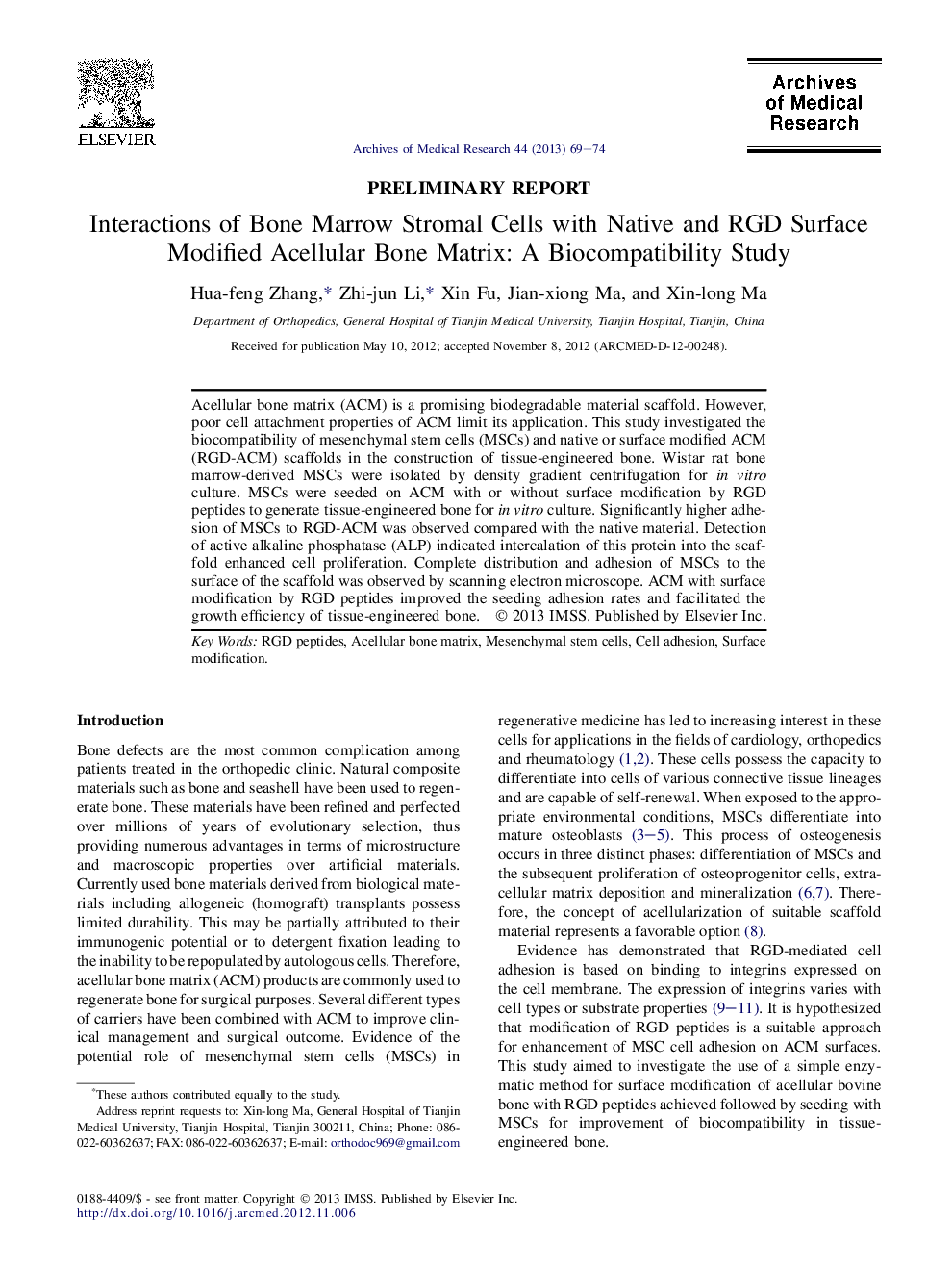| Article ID | Journal | Published Year | Pages | File Type |
|---|---|---|---|---|
| 3446992 | Archives of Medical Research | 2013 | 6 Pages |
Acellular bone matrix (ACM) is a promising biodegradable material scaffold. However, poor cell attachment properties of ACM limit its application. This study investigated the biocompatibility of mesenchymal stem cells (MSCs) and native or surface modified ACM (RGD-ACM) scaffolds in the construction of tissue-engineered bone. Wistar rat bone marrow-derived MSCs were isolated by density gradient centrifugation for in vitro culture. MSCs were seeded on ACM with or without surface modification by RGD peptides to generate tissue-engineered bone for in vitro culture. Significantly higher adhesion of MSCs to RGD-ACM was observed compared with the native material. Detection of active alkaline phosphatase (ALP) indicated intercalation of this protein into the scaffold enhanced cell proliferation. Complete distribution and adhesion of MSCs to the surface of the scaffold was observed by scanning electron microscope. ACM with surface modification by RGD peptides improved the seeding adhesion rates and facilitated the growth efficiency of tissue-engineered bone.
